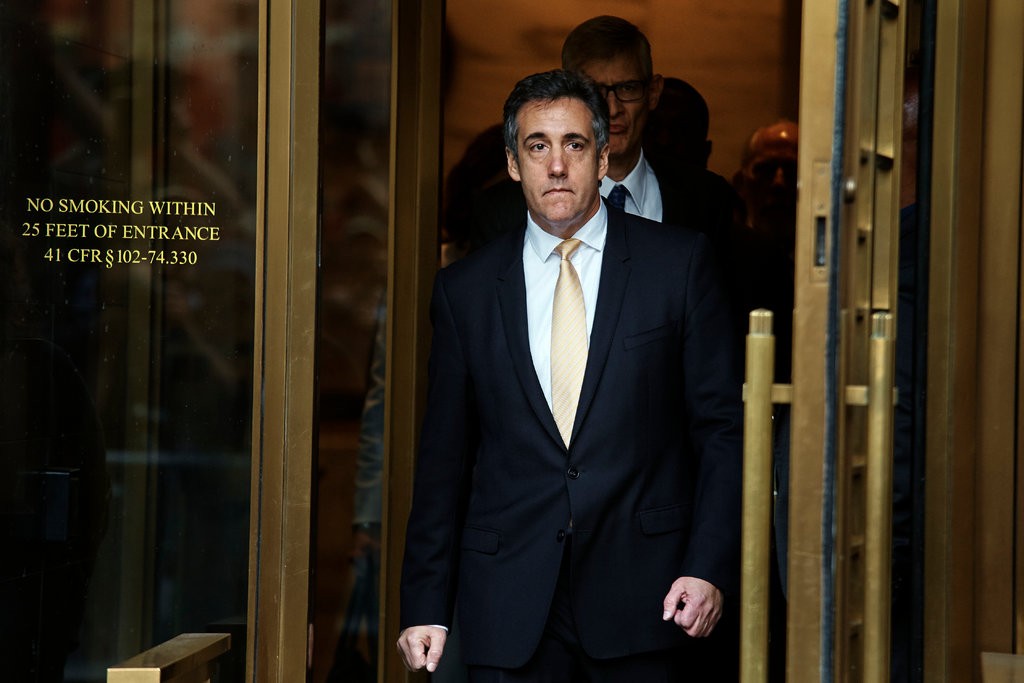The President of the United States has been named as a co-conspirator to federal crimes. Not by tabloids or besmirched rivals, but in a court of law, as a plea accepted by prosecutors and delivered by previous personal lawyer Michael Cohen. It’s the kind of revelation that many have hoped will be the downfall of Trump, our 21st century Watergate. The inevitable fall from grace we’ve all been waiting for since 2016. But 2018 is a strange time, and the main question floating around the offices of political pundits is ‘does this even matter?’ And the even stranger answer is, ‘not really.’
Donald Trump’s alleged crimes are campaign finance violations. Under US law, the hush money paid to adult film star Stormy Daniels and to purchase Karen McDougal’s story concerning her relationship with the President can be considered campaign donations. There are limits on campaign donations of $2,700 dollars for an individual, a figure far exceeded by the $130,000 and $150,000 paid to Daniels and McDougal respectively. And perhaps most damningly of all, Cohen claimed, under oath, that the payments were made ‘for the principal purpose of influencing the election.’
The ins and outs of campaign finance loopholes can be debated, but to many, the question of whether Trump is guilty or not is largely irrelevant. Why? It is not actually clear whether a sitting president can be indicted for a federal crime while in office (an area of law you’d want to be as ambiguous as possible I’m sure). Additionally, Supreme Court nominee Brett Kavanaugh suggests that he does not believe the President can be indicted while in office, a belief that would be almost sure to tip the court in the President’s favour if Kavanaugh were to be confirmed. This is a fact used to support the argument that his nomination is just another step in a criminal conspiracy to defraud the American people and maintain a hold on power.
Therefore, the only way it would be feasibly possible for Mr. Trump to face consequences would be through impeachment proceedings. And that is where things start getting complicated. Despite acting as a substitute for criminal charges, impeachment is a notoriously political proceeding. It is carried out through the Legislative branches of Congress, the House of Representatives and the Senate, rather than through the Judicial branch that one might ordinarily associate with legal matters. To even begin a trial, a resolution of impeachment must be passed with a majority through the House where Republicans currently hold a significant majority. With the extremities of political partisanship feeling more pronounced than ever, it is unthinkable that proceedings could go ahead under the hope that Republicans may vote conscience over party.
So, once again, we’re back at square one. And once more, there’s a twist. In only two months time, Americans will go to the polls for the Midterm elections, with all 435 seats in the House and 35 of 100 Senate seats being contested. And Democrats are expecting some big wins, with Republican strongholds such as Texas seen as within reach. There is a real chance that Democrats could win majorities in both Congress and the Senate. This has been accompanied by real fears from inside the White House that this could bring impeachment proceedings with it.
But underneath all that is another question. Should impeachment be a priority? And despite all the compelling evidence of the President’s wrongdoing, I would argue the obvious answer is ‘no’. As Democrats hurtle towards the midterms, it is clear nobody is winning elections on impeachment. And winning elections needs to be the priority. Not forgetting that even if a ‘blue wave’ were to occur, it would be impossible for Democrats to reach the two-thirds majority needed in the Senate to find the President guilty.
Is there an argument to be made for the symbolic gesture of impeachment proceedings? Sure. But the stronger argument is that Democrats need to do everything they can to win majorities, to prevent the further degradation of democratic institutions and halt some of the President’s most egregious policy decisions. It isn’t the high profile trial of the century that some crave but right now, it’s best they’ve got.
Megan Houston
(Image courtesy of Andres Kudacki for The New York Times).

